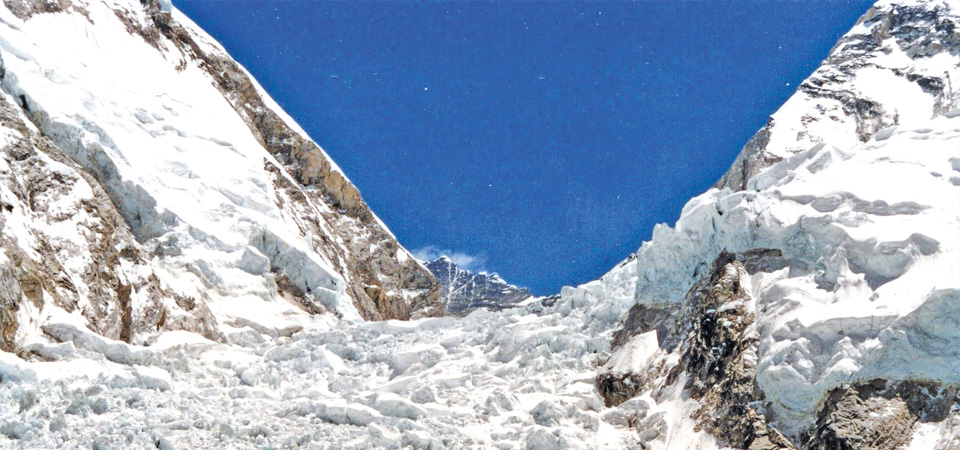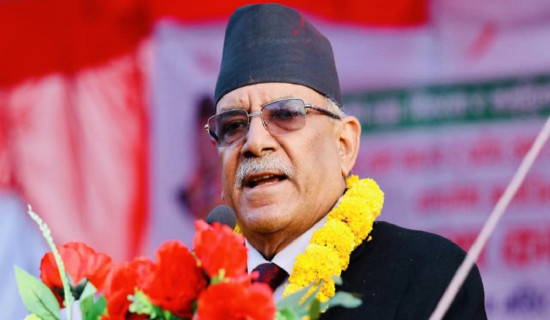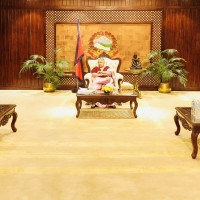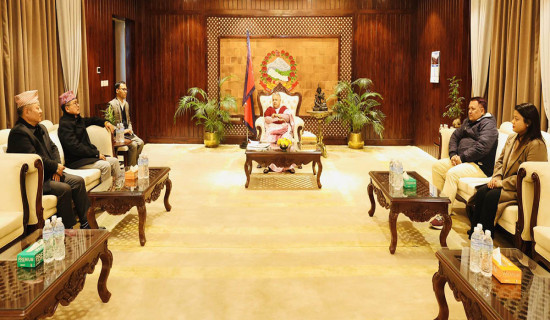- Friday, 9 January 2026
'Collective intelligence' underlined to reduce climate emergencies
By Narayan Prasad Ghimire, Kathmandu, April 23: As the climate crisis is taking a toll on people and the planet with an increasing number of severe incidents, the research and studies have also been continued with a focus on how the world could adopt better climate actions and minimize emergencies in number and scale.
One of the measures the researchers have underlined lately is collective initiatives with a blend of indigenous knowledge and the use of modern technology so that climate actions could be made more participatory and result-oriented.
A recent report published by UNDP Accelerator Labs and the Nesta analyzed the cases from the Global South showing how 'collective intelligence' is applied to fulfill gaps in climate adaptation and mitigation.
The report, 'Untapped: Collective Intelligence for Climate Action', implies 'collective intelligence' as a synergic approach where data, people and technology work in tandem. "At its simplest, the 'collective intelligence' can be understood as the enhanced capacity that is created when people work together, often with the help of technology, to mobilize a wider range of information, ideas and insights." It further argues that collective intelligence results from a combination of these factors which it ensures more than the sum of their parts.
With this, the document has kept center human experiences, traditional practices and the exchange of knowledge on dealing with climate adversities, which can be further optimized by the use of modern technology, including artificial intelligence (AI). The concept of citizen scientists is optimized by it.
"AI is being applied to help make sense from and use large volumes of data, while generative AI techniques are transforming the nature of content and knowledge generation," the report underlined.
As per the study document, there is a 'Bioleft' platform in South America, which is facilitating farmers to know about climate resilient crops as the platform informs about open source repositories of local seed varieties and collaborative seed breeding among them. "The platform enables geo-referencing of seeds and records their transfer under an official Bioleft license," the report mentioned.
Similarly, in another case of climate-smart agriculture, the story about Water-Associated Infectious Diseases in India is mentioned as a 'rare example of disease surveillance for waterborne diseases'. This scheme applies the Smartphone App to map vulnerabilities in a community like cholera occurrence and another waterborne diseases. The information about the sanitary condition of people is availed through data crowd-sourcing with the use of an App.
'DengueChat' is another digital initiative put in place in the Latin American project, which the report says, 'applies citizen science' to control disease outbreaks at a hyper-local level'.
The tech initiative to protect biodiversity is also showcased in the document. The 'CyberTracker Kalahari' focused on the Kalahari Desert of Southern Africa, adopted indigenous knowledge and practices on biodiversity are monitored.
The report also briefly mentions about Nepal's use of technology in land management data. "In Nepal, government representatives have committed to exploring the use of the LANDex tool for official data collection. These tools provide groups that are typically overlooked in local land management disputes with the means to build an evidence base to help them make their case with decision makers or other stakeholders," it added.
The report is coauthored by Aleks Berditchevskaia, Alex Albert, Kathy Peach, Gina Lucarelli, and Alberto Cottica. (RSS)







-square-thumb.jpg)



-original-thumb.jpg)


